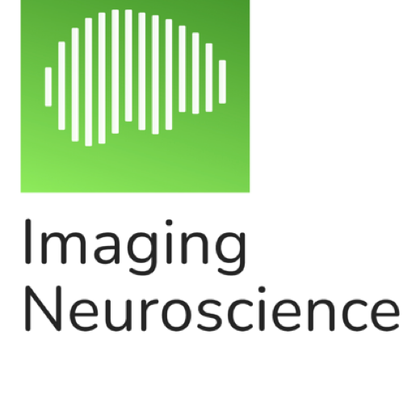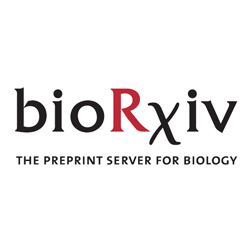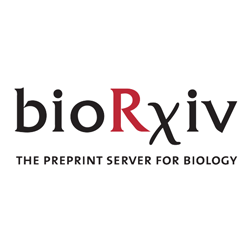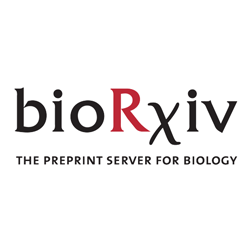
Didac Vidal Pineiro
@VidalDidac
Followers
151
Following
213
Media
0
Statuses
116
Joined May 2016
RT @AndersFjell: New in @NatureMedicine Education is not linked to slower memory or brain decline in aging. We analyzed 400,000 memory test….
0
10
0
RT @SciencesNetwork: Distinguishing Lifelong Individual Differences from Divergent Aging Trajectories of Adult Brain Volumes..
0
1
0
RT @AndersFjell: Very interesting from @VidalDidac - MUCH higher reliability for structural neuroimaging measures with longer follow-up tim….
direct.mit.edu
Abstract. In neuroimaging research, tracking individuals over time is key to understanding the interplay between brain changes and genetic, environmental, or cognitive factors across the lifespan....
0
5
0
RT @AndersFjell: Preprint from @VidalDidac - a common brain factor underlying memory decline in older age. Stronger associations in older,….
0
9
0
RT @fmrib_steve: Preprint on brain aging. From single timepoint data, estimate if delta reflects subject-varying aging rates vs baseline va….
biorxiv.org
“Brain age delta” is the difference between age estimated from brain imaging data and actual age. Positive delta in adults is normally interpreted as implying that an individual is aging (or has...
0
18
0
RT @AndersFjell: We find higher brain activity 12h after learning for memories still intact 6 days later. Despite perfect memory for all it….
0
1
0
RT @AndersFjell: Really interesting from @VidalDidac Follow-up time much more important for reliability than number of timepoints; extend f….
0
2
0
RT @JoeyforWang: Kicking off my new job by (almost) finalizing one of my previous projects 😄. Another major result from our #BBSC_project:….
biorxiv.org
With the feature of noninvasively monitoring the human brain, magnetic resonance imaging (MRI) has become a ubiquitous means to understand how the brain works. Specifically, T1-weighted (T1w) imaging...
0
2
0
Check our latest work where we assess the reliability of longitudinal MRI based data and the effect of follow-up time, number of observations, sample characteristics, and preprocessing pipeline .
biorxiv.org
In neuroimaging research, tracking individuals over time is key to understanding the interplay between brain changes and genetic, environmental, or cognitive factors across the lifespan. Yet, the...
0
11
20
RT @AndersFjell: Preprint: we study SuperAgers - less hippo atrophy and more retrieval-related activity associated with superior memory acr….
biorxiv.org
Some older adults show superior memory performance compared to same-age peers, even performing on par with young participants. These are often referred to as SuperAgers . It is not known whether...
0
4
0
RT @AndersFjell: Remarkably similar effects of fetal influences across development, mid-life and aging, at least in part no-genetic. Thanks….
0
2
0
RT @AndersFjell: Much of the differences between people in aging are caused by early - even prenatal - factors. These are at least partly e….
0
4
0
RT @james_m_roe: Finally (!) out in @eLife 📢 We use replicable effects in adults to trace two forms of brain development never before track….
0
11
0
RT @AndersFjell: What influences how your brain looks in aging? Prenatal factors (i.e. birth weight) have large, stable and consistent effe….
biorxiv.org
Human fetal development has been associated with brain health at later stages. It is unknown whether and how consistently growth in utero, as indexed by birth weight (BW), relates to lifespan brain...
0
4
0
RT @AndersFjell: Preprint! Liisa Raud tested hippo-cortex FC n=751 w rest + two memory tasks: retrieval shows a specific pattern indicative….
0
4
0
RT @JoanaBPereira1: I am looking for a Postdoctoral Researcher to work on different Neuroimaging projects in at Karolinska Institute, the….
ki.varbi.com
Do you want to contribute to top quality medical research? A postdoctoral position (scholarship) is now open in the Brain Connectomics Lab led by Principal Researcher and Associate Professor Joana B.
0
28
0
Check the last paper of our group by @capelex_neuro! Nice work!! .Here, we studied age-related differences in functional connectivity during an episodic memory encoding task (n=488, 18–81 years) with retrospective longitudinal cognitive and MRI data avail.
2
6
13



